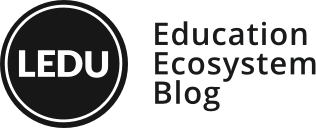Everyone is always asking about the members of the LiveEdu team. Today, we have a special interview with our Backend Developer, Alex Zhukov. Alex talks to us about his background, his role with the team and some of the challenges and future work required for the ICO. You can also take a look at Alex’s social profiles below:
The LiveEdu Pre-ICO is still ongoing. Don’t wait, get your EDU tokens today and secure your bonus!

1) Alex, can you tell us a bit about yourself?
In all the “biography” sections on various sites I typically just write, “Yep, that’s me”.
It’s not like I’m some secretive Russian hacker (oops, just blew my disguise!) or don’t have anything to say. I’m just an ordinary person and I don’t like to brag about myself.
There is also a very limited number of photos of me on the Internet. I envy Greg Egan – not only his writing is superb (if you’re into hard sci-fi), but there are no images of him at all.
I like to write code. I do that as a part of my job and as one of my hobbies. I’ve been doing it since the age of 6, when my dad built me a ZX Spectrum clone. There are areas I hope I’m good at and there are some areas I’m lacking in. I try to keep up and learn new things, of course.
Unlike many prominent engineers out there, I ain’t no superhero, ninja or rockstar. I can’t fly – although I like DCS – but even in a simulation I still fail to land most of time. I don’t know how to even properly hold a bokken let alone wield a shinken. And the only instrument I can play is air guitar – and not in public. I don’t like other cliches in self-descriptions too, but I like my cats.
2) What is your role on the LiveEdu team?
I’m a software engineer, working on the website and related server-side pieces. I’ve been on the team almost since the very beginning – joining only a few months after the company was started. Formally, I’m leading the backend development but in reality we’re a small team and the organization is flat.
I also set up various internal tools (like CI/CD) and do some research work whenever time permits. I’m always on the lookout for new technologies or promising ideas, or checking where we’re lagging behind, taking notes on what we could improve.
3) What has been the most challenging thing about the ICO to date?
Two things.
First, was setting up the Ethereum node, running on a private developer network, automatically deploying the smart contracts there, and writing and running automated tests to ensure everything worked correctly. Looking back, it’s not something complex, but it took time to actually get things right.
Second, was meeting the changing requirements of the pre-sale. While we had researched the market and generally knew what to expect, the reality is, there’s always someone with some requests or suggestions; good ideas that we hadn’t already thought of.
4) What are you currently working on?
At the moment, my first priority is getting the dashboard on the ICO website ready for the main sale. I have to polish all the functions, improve automatic tests and ensure the production systems security. Then, I get a good night’s sleep and review it again – possibly spotting something previously missed.
After this, we have a lot to improve about our site. I still have new sign-up processes awaiting some fixes and code reviews.
5) How do you see your role changing once the ICO is completed and successful?
Not much. There are always things to improve, but in general I like what I’m doing now.
The team will expand, so maybe we’ll need to somehow alter the processes how we work – such things change with scale, so my role can change and I can take some extra responsibilities and delegate some of my current ones to other team members.
6) What impact do you think LiveEdu can have on the wider blockchain and cryptocurrency community?
We’re trying to make an impact on the education market. We want to create and provide quality learning material on how to build real-world projects – by watching how others do it. As for the cryptocurrency – we’re not necessarily building the next bitcoin or ethereum, but we’re making a good contribution.
For us, tokens will be used as a payment system on the LiveEdu network. Many companies do this, and we’ll also contribute in this space, bringing us a little bit closer to the future where cryptocurrencies are universally accepted. A meager, but still important role.
We also want to educate people about blockchain technology. We’ll work with content creators to make good projects that teach about cryptocurrency, and thus give the community some boost. There are myriads of snippets and short tutorials on the Internet, but it’s rare to find examples of complete projects. I hope that is where we’re going to make a difference.







